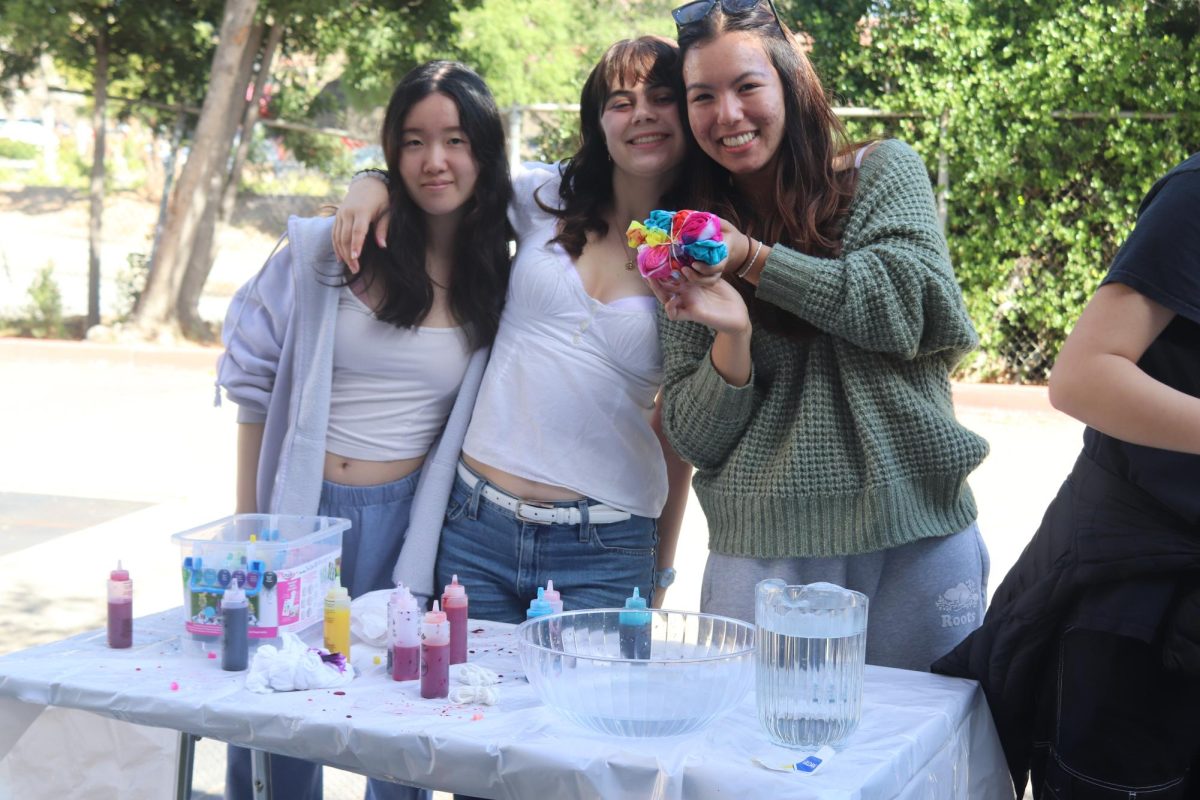We all know the feeling of snuggling up to watch Netflix after a long day, unsure of what show to turn on. Maybe a romcom? Or a historical documentary?
For many, the answer has been true crime.
The true crime genre has consistently snagged two of the top ten spots for most watched shows on Netflix during the past few months. This includes “Monsters,” a case about the Menendez brothers that ranked first from September 16 to September 29 and remained in the top ten until November 3 of this year.
The case sparked widespread controversy after the brothers claimed that their violent actions, resulting in the deaths of both of their parents, were committed in self-defense against years of sexual abuse.
Critics of “Monsters” highlight ethical questions about documenting true crime cases, raising concerns about sensationalizing real-life trauma for entertainment.
What is it about these dark, often disturbing stories, that captivate millions of viewers? Is it the mystery, the search for justice, or something more psychological at play? Is the public’s fascination leading to more unethical practices in the true crime industry?
In an X post, Erik Menendez, one of the perpetrators, criticized “Monsters” director Ryan Murphy for his unsubstantiated depictions of drug use and implied incest. 
“Netflix’s dishonest portrayal of the tragedies surrounding our crime has set the truth back several steps,” Erik said. “Let the truth stand as the truth. Violence is never the answer, never a solution, and is always tragic.”
Some, including Jessica Laurens, an investigative reporter and true crime producer who has reported for CBS and produced shows such as “Snapped” and “Killer Couples” with the Oxygen Network, believe the popularity of the show influenced the decision to reopen the case.
Laurens reasons that because the Menendez brothers went through a full trial, reopening the case could traumatize family members, especially given that the new evidence hasn’t been dated or confirmed by experts.
“It gives the message that if you ring a bell loud enough, if you have a ton of money to get a spicy attorney, that you can shape the media outlets and get them to air it [a case] so much that a judge feels pressured to deliver a different outcome,” Laurens said.
A statistic from the National Registry of Exonerations corroborates her point. According to the website, fewer than 2% of criminal cases with newly discovered evidence result in a retrial.
However, not all students believe true crime is unethical. Senior Isabelle Lau indicates that shows covering cases can be respectful if approached carefully.
“I think that the victim’s cases should be told in order to bring justice to their unfortunate circumstances and to hold the perpetrator responsible for their actions,” Lau said. “However, I agree that it is completely reasonable if the victim or the victim’s family wishes to not disclose any information on the situation… Some people cross those boundaries because they really do want to get that story out, but even in that aspect, it [crossing boundaries] is still really disrespectful.”
Senior Aiden Chen, an avid true crime fan, believes the same courtesies should be extended to perpetrators despite the acts they’ve committed.
“If you commit a crime… I think you’re entitled to know how they [the show] portrayed you,” Chen said. “You deserve the same human respect… but also, to a certain extent, these stories should be shown to the public.”
As the true crime genre becomes more present in social media, cases are increasingly discussed, reposted, and only share one side of the story, often at the expense of accuracy and journalistic integrity.
“A lot of these [true crime] cases trend on TikTok and Instagram,” Laurens said. “Releasing information without being able to confirm if the other side is true or what’s being said is true is… sensationalism and clickbait.”
The dilemma of balancing the need to speak brutal truths with concerns about victim and perpetrator privacy is a growing challenge. Additionally, the influence of modern media on public opinion makes ethical questions surrounding true crime more relevant than ever.
“True journalists are supposed to be open minded,” Laurens said. “You’re supposed to air both sides and let others decide what the truth is, give facts. [In “Monsters,”] there’s too many holes that are unfilled or rocks [left] unturned, and I think that’s reckless.”
Paly students have shared their opinions on how social media affects journalistic integrity, particularly when it comes to how cases are portrayed online.
“I personally would rather learn about the actual events themselves through my own research,” an anonymous sophomore said.
The findings of a survey of 35 Paly students conducted by C Magazine found that the most common reasons people believe true crime shows are unethical are the trauma they inflict on those involved, the potential to re-traumatize victims, and the tendency to sensationalize crimes.
“True crime isn’t just sharing stories; it’s depicting painful experiences as thrilling adventures, and it doesn’t seem right to me to be a fan of it,” an anonymous junior said.
Laurens further emphasizes the importance of being sensitive to victims and their families when covering crime cases in her work.
“People’s lives are forever impacted when a homicide is involved, so it’s important to me that the details are relayed accurately, and the victims and families’ are respected and their wishes are respected,” Laurens said. “It’s a fine dance to make sure that you do interviews and air things [episodes] with integrity.”
However, with the rise of social media and short-form content, there has been an increased prevalence of media influencers attempting to gain views by capitalizing on the popularity of true crime.
“I think the ethics have just gone out the door…There’s Dr. Phil doing True Crime, posts on Fox are doing true crime… and they’re putting out these stories based on speculation or what ifs, and that’s very reckless,” Laurens said.
Lau expressed further concerns about the shift of true crime content to social media platforms.
 “[Social media influencers]… might not want to include all the details to not only desensitize it, but also to tone it [the case] down,” Lau said. “But I feel like in some cases, it’s important that we don’t desensitize or leave out some of the details, because I feel it’s important to know the story of everything.”
“[Social media influencers]… might not want to include all the details to not only desensitize it, but also to tone it [the case] down,” Lau said. “But I feel like in some cases, it’s important that we don’t desensitize or leave out some of the details, because I feel it’s important to know the story of everything.”
To prevent the recklessness of such behaviors, Laurens outlines the procedures she follows to ensure each episode presents information respectfully and in a digestible manner.
“First, I try to get the records, I try to find the people closest to each case, and then hear different perspectives and pull every single element that could put the story together in a visual way, in a factual way, and then help an audience see this in a storytelling platform,” Laurens said.
Although acknowledging the prevalence of unethical practices in the production of some true crime shows, Laurens recognizes the positive impact of publicizing such cases. She acknowledges that raising awareness can help keep the community informed, empower civilians to contribute to ongoing investigations, and potentially aid in the pursuit of justice.
“Knowledge is power,” Laurens said. “If people can hear details about crimes, they can help solve them.”
TVCriminalsfinalfinalfinal
















